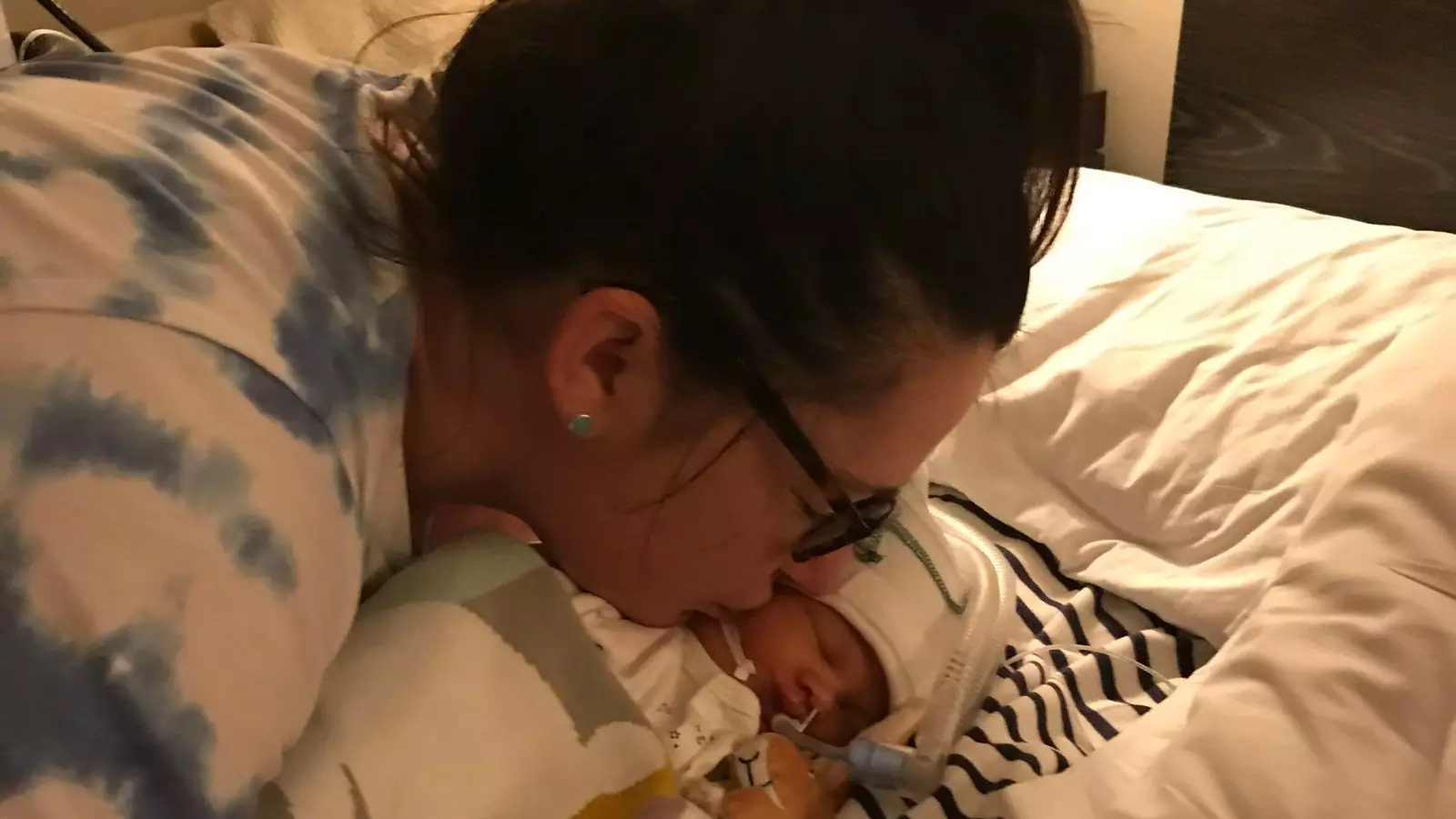The heartbreaking case of young Ida Lock shines a glaring light on the severe shortcomings within maternity care systems. Born at the Royal Lancaster Infirmary in November 2019, she tragically died just seven days later due to preventable complications stemming from a lack of basic medical care. Such a profound loss not only devastates a family but also indicts the entire healthcare framework that is supposed to prioritize the well-being of mothers and their newborns. Parents Ryan Lock and Sarah Robinson’s battle for truth and accountability after their daughter’s unnecessary death underscores a chilling reality: the systems meant to protect, in some instances, fail catastrophically.
The System’s Indifference
From the onset, the response of the University Hospitals of Morecambe Bay NHS Trust paints a disheartening picture. Initial inquiries dismissed any wrongdoing, raising immediate suspicions about a system inclined toward self-preservation rather than accountability. Sarah Robinson articulated her despair, feeling blamed instead of supported. “My world had shattered,” she said, echoing the sentiments of countless parents who have been victimized by institutional failure. The truth is, when hospitals react defensively to grievous incidents instead of conducting transparent investigations, they set off a cascade of mistrust and despair. This indicates a widespread cultural issue that prioritizes institutional reputation over patient safety and transparency.
Documented Failings
The independent report from the Healthcare Safety Investigation Branch (HSIB) elucidated numerous oversights and systemic failures that contributed to Ida’s death. Foremost among these was the midwives’ inability to recognize an abnormally slow fetal heartbeat, signifying a lack of vigilance and failure to act when the situation demanded it. Further compounding this tragedy was inadequate resuscitation efforts after birth. Such repeated failures call into question not just individual competencies but also systemic protocols and training processes that ultimately endanger lives.
Dr. Bill Kirkup highlighted a pervasive culture of negligence in maternity care during his testimony, asserting that the problems are not isolated to one facility, but indicative of a sluggish reform in the entire healthcare sector. This widespread lack of accountability cannot be overstated; it has resulted in preventable deaths that haunt families, echoing loudly in their grief and anguish. Hospitals that should serve as sanctuaries become harbingers of despair when they fail to uphold basic caregiving standards.
The Call for Accountability
Ryan Lock’s impassioned plea for accountability is both vital and necessary. “There needs to be more accountability,” he stated, and this is a sentiment that reverberates through the hearts of many who have faced similar tragedies. A system that allows individuals to evade responsibility cultivates a culture of deceit where negligence is overlooked rather than addressed. This is not merely a call to action; it’s an urgent demand for transformation at the very foundation of healthcare practices.
The statistics reveal an even grimmer landscape. According to the Care Quality Commission, over 130 maternity units were assessed; an alarming 65% received ratings of “inadequate” or “requires improvement.” This is not just a statistical anomaly; it reflects systemic failings that have far-reaching consequences. Families deserve a healthcare system that is as vigilant and dedicated as they are, yet the figures tell a story of neglect that cannot and must not be ignored.
Long-term Impacts on Families
Ida’s legacy is felt deeply by her family, especially by her mother, who now resides in the shadow of her loss, grappling with lingering anxiety and stress. The trauma of such an experience alters one’s very essence; no parent should have to undergo the indignity of fighting for the accountability of a system that is supposed to be a haven for healing. Her subsequent pregnancy may have brought new life, but it has not erased the scars left by this tragedy—it only underscores the profound psychological toll inflicted on families in similar situations.
Tied to all these failures is the overarching need for societal awareness and systemic reform. Changes must occur not only at the policy level but also within the healthcare culture itself. The experiences of families like the Locks should compel us all to demand a healthcare system where compassion and accountability reign over negligence and silence. Such change is not simply an administrative necessity; it is a moral imperative to ensure that no parent has to bury their dreams along with their child.


Leave a Reply